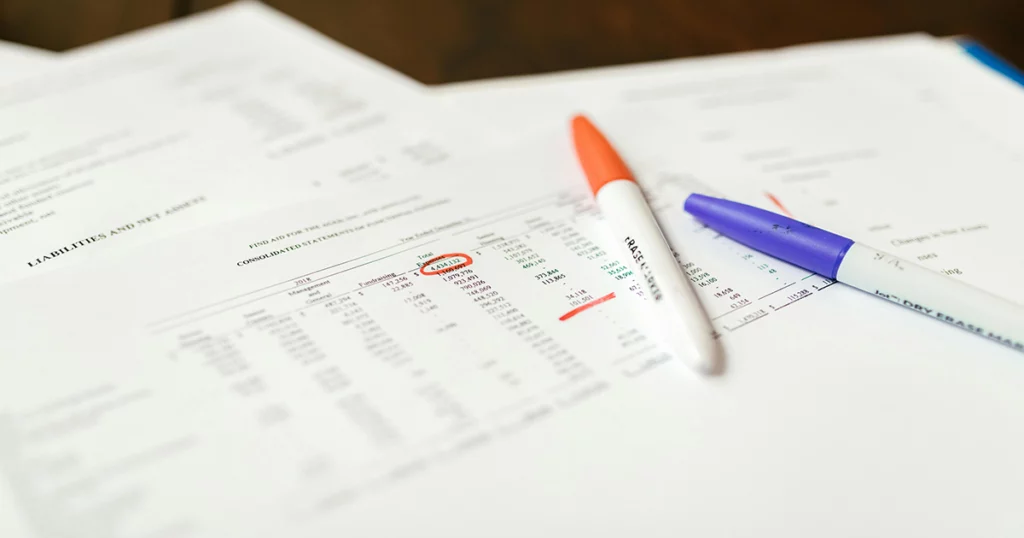Valuing your business is critical not just when you are planning to sell but also when planning for the future. The demand for business brokers remains high, with the broker market averaging a worth of £268.1 million.
Commissioning a valuation report from an expert always makes sense to ensure accuracy and objectivity in the results. However, you may be wondering which factors most influence the value of your business.
In this guide, we discuss the factors likely to lead to the highest possible value for your business in your valuation report.
Most common ways of valuing a business
Determining the correct way to value your business is critical to getting a valuation you can rely on. Valuation experts will choose the method that makes the most sense based on the nature of your organisation.
Here are the three most common ways your business may be valued:
1. Comparable Analysis – This method estimates the value of your business by comparing it to similar businesses in your industry.
2. Discounted Cash Flow (DCF) – DCF is a sophisticated business valuation method that works by determining a company’s value based on its future cash flows.
3. Asset Valuation – If you’re an asset-rich business, a valuation expert may conduct an asset valuation, which factors in the total value of all tangible and intangible assets.Despite these three common valuation methods, there are others you may come across. For example, you can use the entry valuation method, which measures how much it would cost for an entrepreneur to start a similar venture from the ground up.
What key areas are included in a business valuation report?
The rise in the UK’s business community has coincided with an overwhelming wave of optimism. For example, 80% of entrepreneurs with businesses worth at least £100,000 were optimistic about growth. It’s another reason why the number of requested valuations has increased.
But what key areas will be covered as part of your report?
-
- Cover – The cover, or introduction, provides the basic information about the report and the company being valued.
- Valuation Summary – This page covers the valuation method used, standards, the purpose of the valuation, and the actual value of the company according to the report.
- Executive Summary – An overview of what’s been found by the business valuation.
- Economic Outlook – Details of the organisation’s economic status and how economic factors influenced the final valuation.
- Industry Outlook – Insights into the broader market the company operates in and how this has influenced the value of the company.
- Business Overview – The business’s history, ownership, management, and how it operates.
- Cost of Capital – If you’re using an income or hybrid approach, this section will include the capitalisation rate to be used for earnings and cash flow.
- Discounts and Premiums – Any percentages used to increase or decrease the final value and the reasons behind these specific percentages.
- Conclusion – The final description detailing how the value was calculated and why one method or standard was used over another.
- Appendixes – Any supporting documents, such as industry comparisons, financial statements, and resources used.
In short, a business valuation covers everything from the financial numbers to how a firm operates. The final valuation accounts for practically anything and everything that could influence value.
Factors that influence a business valuation

Deal values are rising across the UK, with the average deal value rising by $25 million USD today against 2022 levels. Naturally, if you’re selling a business, you want to get the highest possible valuation to fund your exit strategy.
But what are the key factors that will come to influence your business valuation?
Earnings and revenue
High-value companies have stable earnings and revenue trajectories that are both positive and consistent. Stability over longer periods is prioritised over sudden spikes in your fortunes because it illustrates a company built on solid foundations.
Assets and liabilities
All companies will see an uplift in their valuations when they have more assets, whether those are tangible or intangible assets. On the other hand, these assets shouldn’t be equalised by lots of liabilities, whether that’s debts or obligations.
How these are balanced will impact your final valuation because a heavily indebted company is less attractive than one with plenty in the bank and minimal external obligations.
Market conditions and competitiveness
Your business doesn’t exist in isolation. High-value companies operate in a strong market with good long-term prospects and a competitive edge. Right now, clean energy, AI and robotics are among the strongest markets, leading to large valuations for companies in these sectors.
Growth potential
Past and present performance matters, but you’ll also see higher values if your company is poised to conquer new markets. If you’ve got a clear and realistic growth strategy, it will contribute to higher values.
Value and reputation
Your brand is a major influence on value, as is your reputation within the industry and with your target audience. For example, the aircraft manufacturer has seen its brand value plummet due to strikes and safety concerns.
What is the most influential factor in business valuation reporting?
No single factor stands out when it comes to business valuations. Instead, high-value companies are on solid ground, demonstrate immense profitability, and have bright futures.
However, if you’re looking for one area to focus on before getting your business valued, tackle those liabilities and concentrate on generating more year-on-year revenue. Ultimately, profitability is what most entrepreneurs look for the most.
At Hilton Smythe, we support the UK’s business community in getting their companies valued and preparing their exit strategies. If you’re interested in ordering a business report to get a full overview of your company’s value, speak to the team now.
